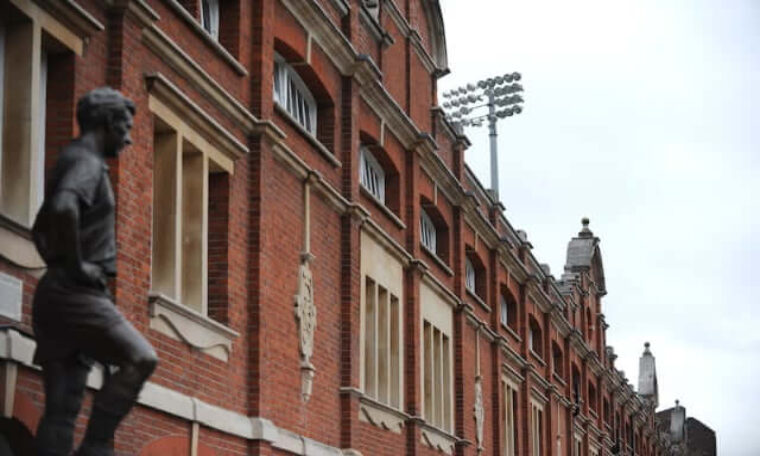The state of football governance.

There has been plenty of news recently around the release of a football ‘white paper’ which is set to make major changes in governance of the sport. Tom Greatrex gives his thoughts on these moves and how it can impact Fulham in the future.
Fulham fans have always had to fight for the future of our beloved club. From the sale of the freehold of Craven Cottage to long since defunct property developers, through to the messy plan to merge local rivals to create ‘Fulham Park Rangers’, public inquiries over the future of Craven Cottage and the successful ‘Back to the Cottage’ campaign from which the Fulham Supporters’ Trust was formed, off-field matters have been as pertinent as the team’s on-pitch fortunes to many supporters for a long time. The Trust has consistently campaigned for reforms to the game’s governance, as we’ve seen a number of clubs suffer at the hands of ill-equipped ownership, and contributed to the Culture, Media and Sport Select Committee’s review of football governance back in 2010.
Nearly two years ago now, the wider football family were shocked as a handful of Europe’s most powerful clubs sought to obliterate our game’s current structure and replace it with a closed shop league in order to hoard even more of football’s wealth.
The European Super League provoked such a furious response from supporters that, within 72 hours, the whole concept had fallen apart while the Government said it would launch the fan-led review of football governance, which had been promised in the Conservative Party’s 2019 General Election manifesto.
Arsenal, Chelsea, Liverpool, Manchester City, Manchester United and Tottenham Hotspur all pulled out of the ESL proposals as owners and chief executives scrambled to explain, and excuse, their involvement before sheepishly admitting to have got it badly wrong.
Tracey Crouch MP was tasked with leading fan-led review and pulled together an expert panel which featured, amongst others, the FSA’s chief executive Kevin Miles. During the process more than 130 supporters’ trusts and groups from across the game gave evidence.
While the review was “ownership neutral” in many senses its recommendations offer protections that come along with the FSA’s preferred model – supporter ownership.
There were detailed plans for a new independent regulator for English football (the snappily titled “IREF”) which would operate a licensing system for professional men’s football. That means more real time scrutiny of the real financial state of clubs, with IREF taking a more proactive approach towards intervening in crisis clubs, alongside a new owners’ and directors’ test for clubs to protect these important community and cultural assets.
Almost every club trades on the name of its town or city, its local community. Its behaviour affects that community financially and emotionally. If they go bust its local businesses who are often hardest hit while the damage to the supporter base is immeasurable.
The unique position football clubs hold in our national psyche – you can change your supermarket but not your club – means that anyone who wishes to own a football club should expect more scrutiny than other businesses, not less. In a phrase often coined by the author of Shahid Khan’s periodic programme notes, owners are custodians of cultural assets – and they should understand those assets hold a wider value which requires protections beyond that of other businesses.
The review also proposed better supporter engagement models, the protection of club heritage and redistribution of football’s wealth throughout the grassroots and the pyramid.
These are all positive steps that we’d expect supporter ownership to deliver but supporter ownership at the elite level is not a realistic goal while top-flight clubs are valued at as much as £5bn. So the review, and the resulting White Paper, is an effective workaround.
So how does the Government’s White Paper, published last week, measure up to the review’s recommendations?
While there will be a short and focussed period of detailed consultation in the weeks ahead, as an initial assessment, the White Paper addresses our key concerns around protecting against bad ownership and breakaway competitions whilst seeking to distribute football’s wealth in a more equitable manner throughout the game. There are also progressive ideas on supporter engagement and new protections around heritage issues (stadiums, kit colours, club crests and so on).
While the EFL has committed to these changes and the FA has accepted the need for oversight independent of club owners, the Premier League and some of their clubs’ leading lights remain opposed – misleadingly presenting a club licensing approach as used in most other UEFA nations, as ‘government running football’. The fact that football itself has not addressed many of the issues identified in the fan led review over the last twenty years or so does not give anybody much confidence that ‘football’ (ie Karren Brady and David Sullivan with Martin Samuel as a tabloid cheerleader) has the slightest inclination to fix its own problems.
Does the White Paper commit to every single thing we want? No. Will some of the Premier League’s club owners oppose it with all their might? Probably. That’s a good indication this is a step in the right direction. The size of that step will be determined by legislative progress through Parliament in 2023 – and we will be watching closely.
Tom Greatrex is the vice chair of the Football Supporters Association, former chair of the Back to the Cottage campaign, a previous Labour and Co-Operative MP for Hamilton and Rutherglen West and a member of the Fulham Supporters’ Trust board
